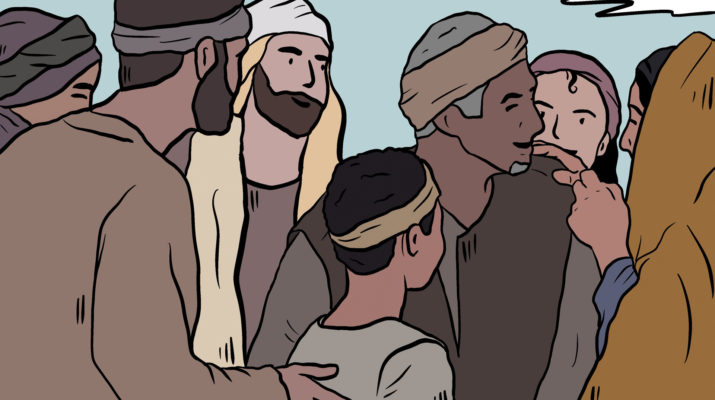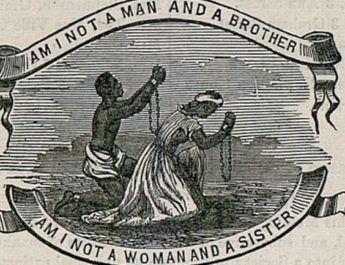Acts 2:37-42
Narrative Lectionary
37 Now when they heardA this, they were cutB to the heartC
A “heard” = akouo. This is hear or listen, but it also means to understand by hearing. This is where the word “acoustics” comes from.
B “cut” = katanusso. 1x in NT. From kata (down, against, according to, throughout) + nusso (to prick pierce, strike, or nudge). This is to pierce all the way through, prick violently or deeply. It can refer to deep emotional pain.
C “heart” = kardia. Literally the heart, but figuratively mind, character, inner self, will, intention, thoughts, feelings. Also, the center of something. The word heart is only used figuratively in the Old and New Testaments. This is where “cardiac” comes from.
and said to PeterD and to the otherE apostles,F
D “Peter” = Petros. Related to petra (large rock that is connected and or projecting like a rock, ledge, or cliff; can also be cave or stony ground). This is Peter, a stone, pebble, or boulder.
E “other” = loipos. From leipo (to leave behind, be lacking). This is the rest, remained, remnant, other, residue.
F “apostles” = apostolos. From apostello (to send, send away, send forth as a messenger, to commission); {from apo (from, away from) + stello (to set, arrange, prepare, provide for)}. This is a messenger – someone sent out on a mission as an envoy or delegate. It can also refer to someone set at liberty. Generally, this is a messenger who is meant to be a representative of the one who sent them. They are thus, set apart on a mission literally or figuratively.
“GBrothers,H what should we do?”I
G {untranslated} = aner. This is man, male, husband, or fellow. It can also refer to an individual.
H “brothers” = adelphos. From a (with, community, fellowship) + delphus (womb). This is a brother in a literal or figurative sense. It is also used of another member of the Church.
I “do” = poieo. This is to make, do, act, construct, abide, or cause.
38 Peter saidJ to them, “Repent,K and be baptizedL every oneM of you
J “said” = phemi. From phao (to shine). This is to declare, say, or use contrasts in speaking to shed light on one point of view.
K “repent” = metanoeo. From meta (with, among, after, beyond) + noieo (to perceive, think, understand); {from nous (mind, understanding, reasoning faculty, intellect, capacity to reflect)}. This is to change how one thinks, to reconsider, to repent. It refers to a change of thinking, which means a change of purpose and behavior.
L “baptized” = baptizo. From bapto (to dip or dye; to entirely cover with liquid, to stain). This is to submerge, wash, or immerse. Used specially for baptism.
M “every one” = hekastos. Perhaps from hekas (separate). This is each one, any, every. It is every individual as a distinct entity as opposed to those counted as a group in small sets.
in the nameN of JesusO ChristP so that your sinsQ may be forgiven;R
N “name” = onoma. May be from ginosko (know, recognize, learn from firsthand experience). This is a name, authority, cause, character, fame, reputation. The name was thought to include something of the essence of the person so it was not thought to be separate from the person.
O “Jesus” = Iesous. From Hebrew Yehoshua (Joshua, the Lord is salvation); {from YHVH (proper name of the God of Israel; the self-existent and eternal one); {from havah (to become) or from hayah (to come to pass, become, be)} + yasha (to deliver, defend, help, preserve, rescue; properly, to be open, wide or free, which implies being safe. So, in a causative sense, this is to free someone)}. This is Jesus or Joshua in Greek – the Lord saves or the Lord is salvation.
P “Christ” = Christos. From chrio (consecrate by anointing with oil; often done for prophets, priests, or kings). Literally, the anointed one, Christ. The Greek word for Messiah.
Q “sins” = hamartia. From hamartano (to miss the mark, do wrong, make a mistake, sin); {from a (not) + meros (a part or share)}. Literally, this means not having one’s share or portion – like not receiving inheritance or what was allotted to you. This word means missing the mark so it is used for guilt, fault, and acts of sin.
R “forgiven” = aphesis. 17x in NT. From aphiemi (to send away, release, abandon, lay aside, forgive); {from apo (from, away from) + hiemi (to send, to go)}. This is sending away – a release or letting go. So, it can be releasing someone from debt, slavery, or some other obligation – thus, freedom or liberty. Figuratively it can mean to pardon as releasing from the debt of sin.
and you will receiveS the giftT of the HolyU Spirit.V
S “receive” = lambano. It does not refer to passive receiving of something, but active acceptance or taking of something whether it is offered or simply nearby. It focuses on individual decision and action.
T “gift” = dorea. 11x in NT. From doron (gift, offering, sacrifice; emphasizes that the gift is given freely, voluntarily); from didomi (to give in a literal or figurative sense). This is a free gift given voluntarily and not received by merit or entitlement. It emphasizes the benevolence of the giver.
U “Holy” = hagios. From hagnos (holy, sacred, pure ethically, ritually, or ceremonially; prepared for worship, chaste, unadulterated, pure to the core; undefiled by sin; figurative for innocent, modest, perfect). God is totally different from humanity and thus set apart. That which is consecrated to worship God (elements of worship) or to serve God (as the saints) are holy because they are now set apart for God’s purposes. Holy because important to God. This is sacred physically, pure. It can be morally blameless or ceremonially consecrated.
V “Spirit” = Pneuma. From pneo (to blow, breath, breathe hard). This is wind, breath, or ghost. A breeze or a blast or air, a breath. Figuratively used for a spirit, the human soul or part of us that is rational. It is also used supernaturally for angels, demons, God, and the Holy Spirit. This is where pneumonia comes from.
39 For the promiseW is for you, for your children,X and for all who are far away,Y everyone whom the LordZ our GodAA calls toBB him.”
W “promise” = epaggelia. From epi (on, upon, against, what is fitting) + aggello (to announce, report); {from aggelos (angel, messenger); probably from ago (to lead, bring, carry, guide, drive)}. This is a summons, promise, or message. It is a formal promise that is officially sanctioned. In the New Testament, this usually refers to a promise made in the Old Testament.
X “children” = teknon. From tikto (to beget, bring forth, produce). This is a child, descendant, or inhabitant.
Y “far away” = makran. 9x in NT. From makros (long, long lasting); from mekos (length); probably related to megas (great or large). This is far off, remote, far away in a literal or figurative sense.
Z “Lord” = Kurios. From kuros (authority, supremacy). This is a respectful address meaning master or sir. It refers to one who has control or power greater than one’s own. So, it was also applied to God and Jesus as Master or Lord.
AA “God” = Theos. From Proto-Indo-European origins, meaning do, put, place. This is God or a god in general.
BB “calls to” = proskaleo. From pros (at, to, toward, with) + kaleo (to call by name, invite, to name, bid, summon, call aloud); {related to keleuo (to command, order, direct); from kelomai (to urge on)}. This is to call to oneself, summon.
40 And he testifiedCC with manyDD otherEE argumentsFF
CC “testified” = diamarturomai. 15x in NT. From dia (through, across to the other side, thoroughly) + marturomai (to witness, testify, call as a witness, affirm, charge, protest); {from martus (a witness whether having heard or seen something; witness literally, judicially, or figuratively; by analogy, a martyr)}. This is to affirm, give evidence, testify thoroughly. It is giving full testimony.
DD “many” = pleion. From polus (much, many, abundant). This is many, more, great, having a greater value, more excellent.
EE “other” = heteros. This is other, another, different, strange. It is another of a different kind in contrast to the Greek word allos, which is another of the same kind. This could be a different quality, type, or group.
FF “arguments” = logos. From lego (to speak, tell, mention). This is word, statement, speech, analogy. It is a word that carries an idea or expresses a thought, a saying. It could refer to a person with a message or reasoning laid out in words. By implication, this could be a topic, line of reasoning, or a motive. It can be used for a divine utterance or as Word – Christ.
and exhortedGG them, saying,HH “SaveII yourselves from this corruptJJ generation.”KK
GG “exhorted” = parakaleo. Related to “calls to” in v39. From para (beside, by, in the presence of) + kaleo (see note BB above). This is to call to, summon, invite, request, or beg. It can also be exhort or admonish. Also, this can be encourage, comfort, or console. This word has legal overtones and is used of one’s advocate in a courtroom. It is the root of the name of the Holy Spirit “paraclete” is our advocate and comforter.
HH “saying” = lego. Related to “arguments” in v40. See note FF above.
II “save” = sozo. From sos (safe, rescued, well). This is to save, heal, preserve, or rescue. Properly, this is taking someone from danger to safety. It can be delivering or protecting literally or figuratively. This is the root that “savior” and “salvation” come from in Greek.
JJ “corrupt” = skolios. 4x in NT. Perhaps from skelos (the leg); perhaps from skello (to parch). This is crooked, curved, bent, or winding It is bent because it is parched like wood. Used figuratively for morally twisted or perverse. It is something that does not meet God’s standards. Related to the root for “skeleton” and “scoliosis.”
KK “generation” = genea. From genos (family, offspring, kin – in a literal or figurative sense); from ginomai (to come into being, to happen, become, be born; to emerge from one state or condition to another; this is coming into being with the sense of movement or growth). This is family, generation, kind, or nation. As generation, it implies an age as a period of time. It can also mean infinity. This is the root of the word “generation.
41 So thoseLL who welcomedMM his messageNN were baptized, and that day about three thousand personsOO were added.PP
LL {untranslated} = men. This is truly, indeed, even, in fact. Often, it is not translated, but used to emphasize affirmation.
MM “welcomed” = apodechomai. 7x in NT. From apo (from, away from) + dechomai (to warmly receive, be ready for what is offered, take, accept, or welcome; to receive in a literal or figurative sense). This is to welcome, embrace, receive, approve of. It can also mean to show hospitality.
NN “message” = logos. Same as “arguments” in v40. See note FF above.
OO “persons” = psuche. From psucho (to breathe, blow). This is breath, the breath of life, the self, individual, soul. This is the word for that which makes a person unique – their identity, will, personality, affections. This isn’t the soul as the immortal part of us, but as our individuality. It is also not life as a general concept, but specific to people. This is where the words psyche and psychology come from.
PP “added” = prostithemi. 18x in NT. From pros (at, to, toward, with) + tithemi (to put, place, set, fix, establish in a literal or figurative sense; properly, this is placing something in a passive or horizontal position). This is to add, place to, bring together for a reason, or add up.
42 They devotedQQ themselves to the apostles’ teachingRR and fellowship,SS to the breaking of breadTT and the prayers.UU
QQ “devoted” = proskartereo. 10x in NT. From pros (at, to, toward, with) + kartereo (to be strong, endure; figuratively to be steadfast, to persevere, to be patient); {from kratos (strength, power, dominion; vigor in a literal or figurative sense; power that is exercised)}. This is to show strength consistently in the face of trials. It can also mean to persist, stand ready, be earnest, or attend to something.
RR “teaching” = didache. From didasko (to teach, direct, instruct, or impart knowledge; in the New Testament, almost always used for teaching scripture); from dao (to learn). This is teaching or doctrine.
SS “fellowship” = koinonia. 19x in NT. From koinonos (partner, companion, partaker, sharer); From koinos (common, shared, unclean, ritually profane); probably from sun (with, together with). This is sharing in common so it is fellowship, participation, communion, and aid that comes from the community.
TT “bread” = artos. Perhaps from airo (raise, take up, lift, remove). This is bread or a loaf. It is a loaf as raised.
UU “prayers” = proseuche. From proseuchomai (to pray or pray for, to worship or supplicate; more literally exchanging one’s own wishes for God’s); {from pros (advantageous for, at, toward) + euchomai (to wish, make a request, pray)}. This is prayer, worship, or a place where one prays.
Image credit: “Unity of the Early Believers” by Aya & Nicole Velasquez




